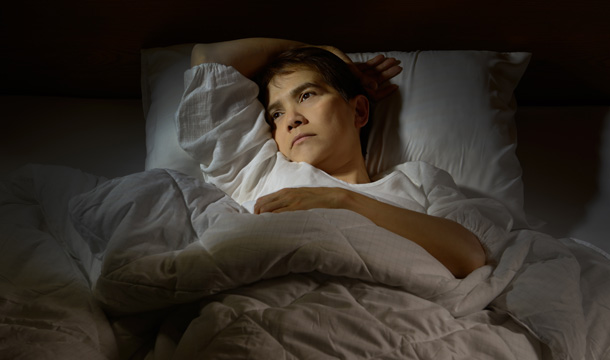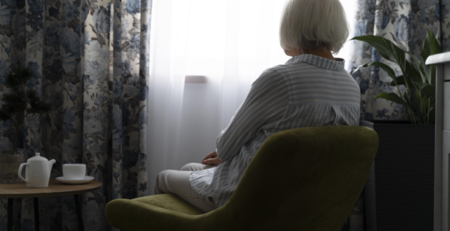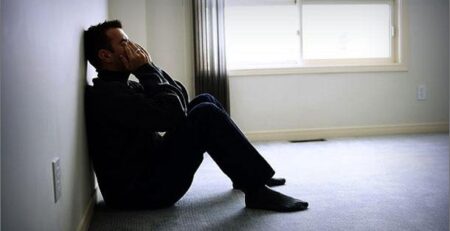What Is Insomnia And What Are The Ways To Treat It?
Many of us experience sleepless nights often in our lives. This could because of many reasons like a problem that bothers you, a late dinner, having too much alcohol or caffeinated drinks, excessive screen time or a bad sleeping position. Although, you might feel lethargic, drowsiness or slow rhythm, this is just short term and we can make up for the lost hours in the coming days. However, it is a concern only when your sleepless nights are persistent more than a week or recur often for an extended period. This is termed as insomnia and is one of the most common mental health problems in the modern era.
According to a study, it is estimated that more than 50% of the adult American population had experienced insomnia more than week while 10% have it as a chronic problem. Another study revealed that about 1 in 3 people in the U.S. reported troubled sleeping. Insomnia is rarely an isolated mental illness, but it is rather a symptom of an underlying illness that needs to be investigated by doctors or registered health care professionals.
It is estimated that around 50% of insomnia cases occur due to depression, anxiety or psychological stress. Insomnia can be primarily due to a chronic medical illness such as sleep apnea or a mental health condition like depression. It can also be a warning sign of other serious mental disorders such as bipolar disorder. In addition to affecting sleep itself, insomnia can take a toll on our physical and mental health too.
Insomnia is a concern when it is coupled with following other conditions such as
- 1. Loss of appetite
- 2. Weight loss
- 3. Withdrawal from social & personal life
- 4. Lack of productivity at work
- 5. Difficulty in carrying out daily routine
Insomnia is a symptom that you can observe in the following mental health disorders such as
- 1. Depression
- 2. Anxiety
- 3. Obsessive Compulsive disorder
- 4. Mania
- 5. Post-traumatic Stress Disorder
- 6. Substance Use disorder
- 7. Panic disorder
Treatment:
The first-line treatment for insomnia is practicing good sleeping habits and getting the right treatment for any underlying conditions that are causing troubled sleeping. Therapy is also necessary along with medical treatment to produce the desired results.
• Good Sleeping Habits
Embracing good sleeping habits is the key to get over insomnia. These habits include following a regular sleep schedule, avoiding naps in the late afternoon or evening, and having a comfortable sleep environment.
• Relaxation Techniques
Deep breathing, progressive muscle relaxation and mindfulness can help activate body’s natural relaxation response and over time you may feel great. These techniques help by reducing levels of stress hormones like cortisol and adrenaline thereby slowing heart rate and breathing. Yoga, meditation and Tai Chi are some of the popular stress relief and relaxation techniques.
• Medication
In some cases, your psychiatrist may prescribe psychiatric drugs to promote sleep. One should take the medication shortly before the bed and be highly cautious about performing any activity after taking an insomnia drug because it will make you sleepy and increase the risk of accidents. One must also be careful regarding the risk of becoming “over-sedated” and the use of alcohol and other medications as well. Medications are generally given only for a short period of time and this works only in combination with good sleep hygiene.
• Alternative Therapy With Herbs
There isn’t a lot of evidence to show that herbal remedies can help treat anemia or that they are safe to take. But some studies have shown that the root of valerian may help people fall asleep. But there is always a risk of drug interactions so tell your doctor if you are using any. Other herbs like kawaii, chamomile, Ashwagandha are on the list, but neither the treatment nor usage is approved by FDA.
• Exercise
Studies show that exercise has got proven benefits in improving sleep quality in young adults and older patients equally with or without the sleep disorder.
• Psychotherapy
The other alternative to treat insomnia instead of sleeping pills is cognitive behavioral therapy.
Cognitive Behavioral Therapy for Insomnia is one of the best alternatives to treat chronic sleep problems as it is safe and effective. Cognitive behavioral therapy for insomnia is a structured program, wherein the therapist you are working with helps you identify thoughts and behaviors that are causing sleep problems and helps you replace such thoughts with habits that can promote sound sleep. Although results are not immediate, but definitely cognitive behavioral therapy for Insomnia yields good results in a more healthy way.
Conclusion
Cognitive behavioral therapy for insomnia is a great alternative for people with sleep problems. Apart from dealing primary insomnia, it can also help treat insomnia associated with physical problems, such as chronic pain, or mental health disorders, such as depression and anxiety. Above all, there is no evidence that it poses negative side effects and the results seem to last. Psychotherapy partners in Minneapolis have expert therapists who can help you get personalized therapy to treat your sleep problems. Get connected today.












Leave a Reply